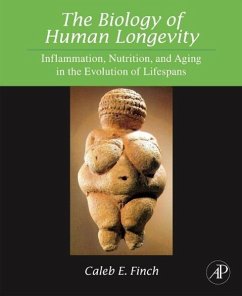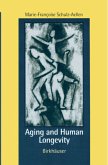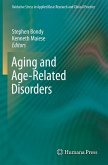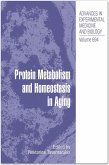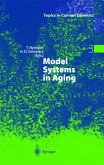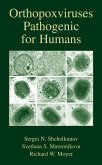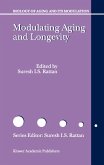Written by Caleb Finch, one of the leading scientists of our time, The Biology of Human Longevity: Inflammation, Nutrition, and Aging in the Evolution of Lifespans synthesizes several decades of top research on the topic of human aging and longevity particularly on the recent theories of inflammation and its effects on human health. The book expands a number of existing major theories, including the Barker theory of fetal origins of adult disease to consider the role of inflammation and Harmon's free radical theory of aging to include inflammatory damage. Future increases in lifespan are challenged by the obesity epidemic and spreading global infections which may reverse the gains made in lowering inflammatory exposure. This timely and topical book will be of interest to anyone studying aging from any scientific angle.
Author Caleb Finch is a highly influential and respected scientist, ranked in the top half of the 1% most cited scientists Provides a novel synthesis of existing ideas about the biology of longevity and aging Incorporates important research findings from several disciplines, including Gerontology, Genomics, Neuroscience, Immunology, Nutrition
Hinweis: Dieser Artikel kann nur an eine deutsche Lieferadresse ausgeliefert werden.
Author Caleb Finch is a highly influential and respected scientist, ranked in the top half of the 1% most cited scientists Provides a novel synthesis of existing ideas about the biology of longevity and aging Incorporates important research findings from several disciplines, including Gerontology, Genomics, Neuroscience, Immunology, Nutrition
Hinweis: Dieser Artikel kann nur an eine deutsche Lieferadresse ausgeliefert werden.
"Overall, this is a rich and timely book full of facts, figures, ideas and connections. Finch has generously referenced this work with 182 pages of literature citations, so it can also serve as an excellent reference volume. One wonders how he can keep producing such comprehensive books on so many diverse topics in aging research, and I hope he is not yet finished!" --Huber R. Warner, Associate Dean for Research University of Minnesota in The Gerontologist, March 2009
"With the coupling of his expertise in neuroscience and clinical medicine to his keen interests in demography and comparative zoology, Finch arguably remains our most potent synthesizer of biology and gerontology. Here his writing conveys a sense of urgency not present in his classic Longevity, Senescence, and the Genome.... the intellectual framework Finch provides in it will be intensely stimulating to both experts and newcomers in the field of aging." --Donna J. Holmes, Washington State University, in SCIENCE Magazine, Vol 319, 22 Feb 2008
"This is a monumental book, which reviews and discusses over 3,000 scientific publications on mechanisms of aging and longevity, with special emphasis on the role of inflammation in senescence and age-related degenerative diseases. The author is an internationally recognized leader in the field of biogerontology, and his volume could serve as a useful reference book for a wide readership including biomedical scientists, biogerontologists and clinicians in areas of vascular disease, diabetes, obesity, Alzheimer disease and other neurodegenerative diseases, genetics of aging and longevity, animal models of aging, anthropology and primatology, evolutionary biology, demography and epidemiology." --Dr. Leonid Gavrilov and Natalia S. Gavrilova, Center on Aging, University of Chicago, in Quarterly Review of Biology (March 1, 2008)
"Finch exemplifies the ideal of thorough scholarship, and we should be grateful for his comprehensive summary of ideas and data that bear upon the intriguing question of why humans live as long as they do." --TOM KIRKWOOD, Institute for Ageing and Health, Newcastle University in Age and Ageing 2009; 38: 636-637
"With the coupling of his expertise in neuroscience and clinical medicine to his keen interests in demography and comparative zoology, Finch arguably remains our most potent synthesizer of biology and gerontology. Here his writing conveys a sense of urgency not present in his classic Longevity, Senescence, and the Genome.... the intellectual framework Finch provides in it will be intensely stimulating to both experts and newcomers in the field of aging." --Donna J. Holmes, Washington State University, in SCIENCE Magazine, Vol 319, 22 Feb 2008
"This is a monumental book, which reviews and discusses over 3,000 scientific publications on mechanisms of aging and longevity, with special emphasis on the role of inflammation in senescence and age-related degenerative diseases. The author is an internationally recognized leader in the field of biogerontology, and his volume could serve as a useful reference book for a wide readership including biomedical scientists, biogerontologists and clinicians in areas of vascular disease, diabetes, obesity, Alzheimer disease and other neurodegenerative diseases, genetics of aging and longevity, animal models of aging, anthropology and primatology, evolutionary biology, demography and epidemiology." --Dr. Leonid Gavrilov and Natalia S. Gavrilova, Center on Aging, University of Chicago, in Quarterly Review of Biology (March 1, 2008)
"Finch exemplifies the ideal of thorough scholarship, and we should be grateful for his comprehensive summary of ideas and data that bear upon the intriguing question of why humans live as long as they do." --TOM KIRKWOOD, Institute for Ageing and Health, Newcastle University in Age and Ageing 2009; 38: 636-637

